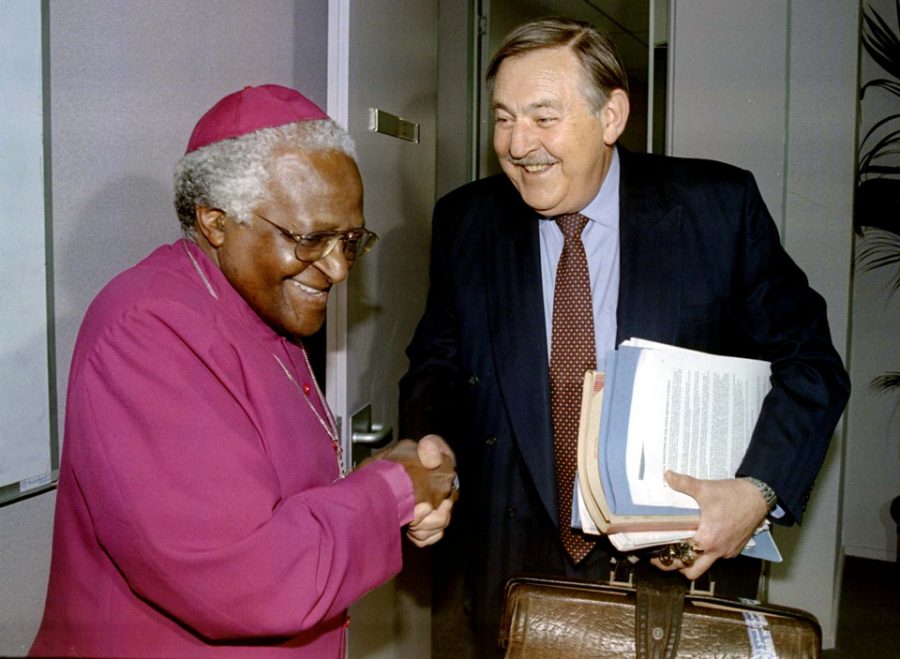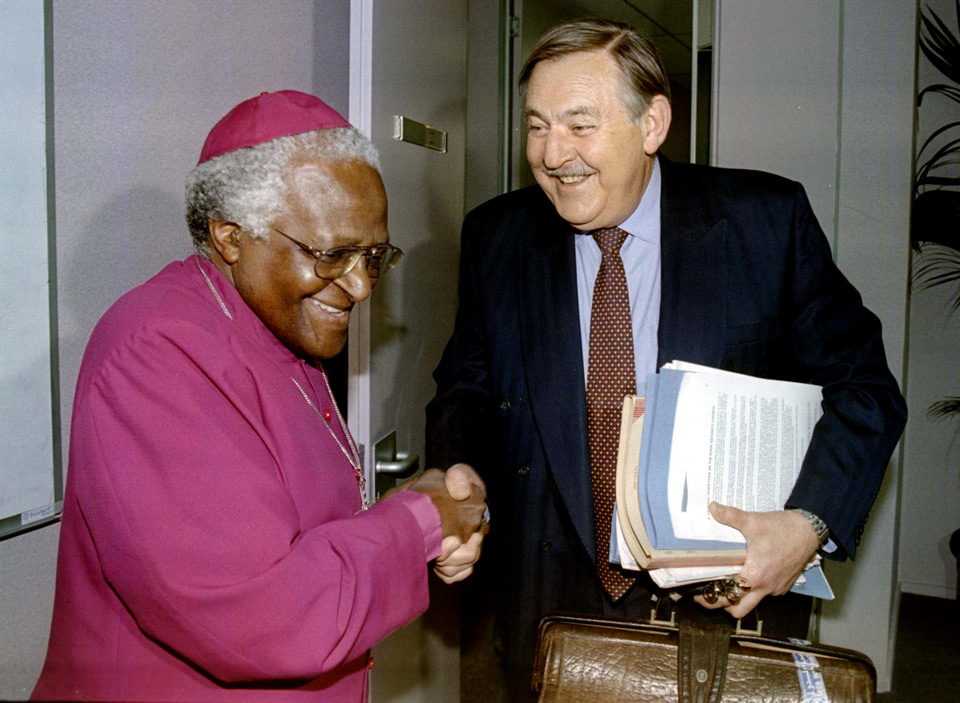
Pik Botha Passes Away at 86
Pik Botha, South Africa’s former Foreign Minister during the apartheid era, has died at the age of 86 after a lengthy illness. Botha’s son – Piet – confirmed to local media that his father had died during the night. Born Roelof Frederik Botha in 1932 in Rustenburg, Pik Botha served as Foreign Minister for 17 […]

Pik Botha, South Africa’s former Foreign Minister during the apartheid era, has died at the age of 86 after a lengthy illness.

Botha’s son – Piet – confirmed to local media that his father had died during the night.
Born Roelof Frederik Botha in 1932 in Rustenburg, Pik Botha served as Foreign Minister for 17 years until 1994… after which he was appointed Minister of Mineral and Energy Affairs by President Nelson Mandela, the country’s first democratically elected leader.
Botha called Mandela a healing figure, praising him in a 2013 BBC interview for “his capacity to forgive and his will to improve the country”.
Mandela had told him, he said, that: “We need each other to succeed.”
Reuter’s Ed Stoddard said: “By turns urbane and jovial, Botha, foreign minister from 1977 until the end of white rule in 1994, was seen as a reformer in the hard-line National Party administrations he served under.”
In 1986, Botha had predicted that South Africa might one day have a black president, a statement that earned him a stern rebuke from President P.W. Botha.
Botha (Pik) said: “As long as we can agree in a suitable way on the protection of minority rights without a racial sting … then it would possibly become unavoidable that in future you might have a black president of this country.”
Botha resigned from political life in 1996.
The BBC described his political career as having been spent “defending the apartheid system, even though he was regarded as a liberal figure.”
Botha had the unenviable job of defending apartheid on the world stage as South Africa grew increasingly isolated, facing economic sanctions abroad while imposing a state of emergency at home and attempting to destabilise its African neighbours.
The Cold War provided the backdrop, as several countries in the region such as Angola and Mozambique allied themselves with Moscow, while Pretoria tried to portray itself as a bulwark against communist expansion.
Regarded as a skilled behind-the-scenes negotiator who loosened adversaries up over rounds of drinks, Botha’s accomplishments included securing a peace protocol that ended South Africa’s military involvement in Angola, where Cuban troops had been sent to defend the Marxist government.
That in turn helped pave the way for the independence of Namibia 1990, which also had an apartheid-style government and had been under South African administration for decades.
xxx
Former President FW de Klerk issued a statement on Friday on the death of Pik Botha, saying:
I have learned with great sadness of the death of Pik Botha. He was one of the leading personalities in South African politics from 1970 until his retirement from active politics in 1996… and was one of the world’s longest-serving foreign ministers. During this period, he resolutely defended South Africa against growing international isolation.
He played a leading role in South Africa’s relationship with South West Africa/ Namibia… In 1988 he concluded the tripartite agreement with Angola and Cuba on the withdrawal of Cuban troops from Angola and the implementation of the UN independence process in Namibia. The agreement was of pivotal importance to the evolution of the political situation in South Africa.
In intense discussions that took place within the NP leadership during the 1980s, Pik Botha was a prominent and consistent advocate of reform, constitutional negotiations and the release of Nelson Mandela from prison…
His colourful style and forthright rhetoric won him widespread popularity among the white electorate and encouraged him, in 1978 and 1989, to stand as a candidate for the leadership of the National Party.
Perhaps his most important contribution, was the manner in which he and his colleagues in the Department of Foreign Affairs held the line against growing international pressure until the collapse of international communism in 1989 opened the way to the negotiations that led to the establishment of our nonracial constitutional democracy.
He was a unique and colourful personality who made an enormous contribution to the peaceful and constitutional resolution of the great historic challenges with which we had to wrestle before 1994.
He was, for many years, a valued colleague and friend. My wife Elita and I would like to extend my condolences to Ina and to his family.
Read the full statement here.
After Botha resigned from politics, he echoed Mandela’s sentiment, saying in 1997: “South Africa is quite far advanced due to the combined effort of both blacks and whites; that they need each other. I used to say we are like a zebra: if you put a bullet into the black stripe or the white stripe, the animal will die.”
(Reporting by Ed Stoddard and Jenni Baxter; Editing by Matthew Mpoke Bigg, Peter Graff and Jenni Baxter)
